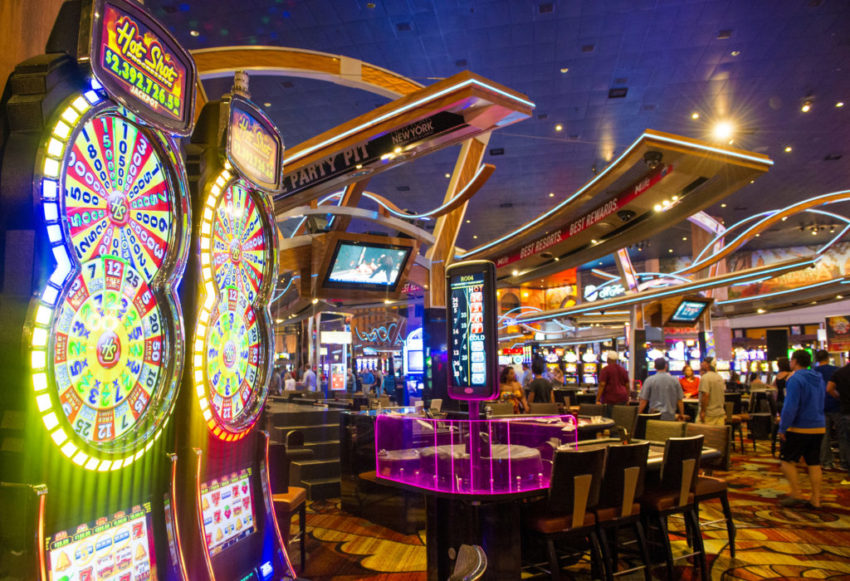
In the world of gambling, where chance and strategy meet, a unique tapestry of beliefs manifests—one that intertwines luck, fate, and the enigmatic nature of casino games. Casinos, bustling with excitement and anticipation, are not just venues for placing bets; they are also arenas in which superstitions thrive. From the novice player to the seasoned gambler, these mysterious practices often shape how individuals approach the games they play, holding the belief that their actions can influence the outcome in ways that go beyond mere probability.
As players gather around roulette wheels, blackjack tables, and slot machines, the atmosphere is thick with stories of lucky charms, rituals, and codified behavior that defy logic yet provide a sense of comfort. It could be the case that it’s wearing a specific outfit, following a particular sequence of bets, or even avoiding certain numbers, the attachment to various superstitions reflects a deep-rooted desire to manipulate the uncontrollable. This article delves into the captivating world of casino game superstitions, examining the beliefs that simultaneously entertain and mystify those who dare to play.
Historical Origins of Superstitions
Gambling games have long been connected with an array of superstitions that go back to early societies. The roots of these notions can be linked to humanity’s innate desire to manage the unpredictable outcomes related with fortune and uncertainty. In early civilizations, activities of uncertainty were often connected to spiritual practices. Gamblers would invoke favor or request favor from spirits, believing that their actions could influence the outcomes in their favor. This foundation laid the groundwork for the myriad of superstitions that proliferated as gambling evolved over time.
During the medieval age, gambling became a popular hobby across Europe, and with it, a colorful tapestry of superstitions developed. Players adopted various rituals and charms, believing they could influence the outcome of games. The value of digits, in particular, began to appear in superstitions around card games and dice. The number 7 was often considered auspicious, while different numbers carried bad connotations. These ideas mirrored the societal contexts of the time, changing as they passed through generations and adapted to emerging gaming environments.
As gambling houses emerged in the 1600s, particularly in the Italian peninsula and France, the atmosphere surrounding betting became steeped in enigma. The growing availability of casino games allowed for the expansion and variation of superstitions among players. Concepts like fortunate charms, designated seating arrangements, and rituals gained prominence, creating a distinct culture within casinos. As these practices continued to thrive, they became essential to the character of casino games, illustrating how historical developments and society shape the convictions that influence how players engage with luck.
Popular Gambling Myths
Superstitions surrounding casino games are abundant and varied, mirroring the hopes and fears of players as they engage in random activities. One of the most common beliefs is that specific numbers bring luck or misfortune. For example, the number 7 is often seen as a favorable digit, frequently sought after by players looking for a positive result. Conversely, the digit 13 is routinely considered unlucky, leading many players to steer clear of it during their gambling sessions.
Another frequent superstition relates to practices that gamblers believe can affect their chances. It could be blowing gently on the dice before a throw, using a particular hand to place a bet, or even wearing specific items of clothing, many people feel that these rituals can sway luck in their benefit. These practices offer a sense of control in an otherwise random environment, strengthening the idea that luck can be manufactured through individual convictions and customs.
Finally, the environment and atmosphere of the gambling house itself contributes to superstition. Many gamblers suggest that the presence of specific icons, such as four-leaved clovers or lucky tokens, can enhance their chances of winning. Additionally, gamblers might hold to the belief that victory streaks can be interrupted by mundane events, such as someone walking past or a spill at the gaming surface. The shared environment in a casino can amplify these superstitions, creating a shared culture of superstitions that transcends single experiences.
Impact of Superstitions on Players
Superstitions play a crucial role in the mindset of casino players, often affecting their behavior and decision-making. https://oke179.life/ Many gamblers think that luck can be manipulated through various rituals, such as wearing a lucky charm, choosing particular hues, or avoiding certain numbers. This reliance on superstitions can create a sense of control in an environment that is inherently unpredictable. Players frequently feel more confident and involved when they think that their actions could sway the outcome of a game in their advantage.
The impact of these superstitions extends past individual players, affecting the general atmosphere within the casino. For example, a player who holds the belief in the luck of a certain slot machine might draw a crowd, as onlookers are fascinated by their apparent luck. This shared belief can heighten excitement and create a dynamic environment, leading to an captivating experience even for those who may not necessarily be superstitious. The excitement around certain games can lead to increased participation and longer playing sessions, supporting the casino’s vibrant social scene.
In some cases, superstitions can lead to harmful effects for players. Relying too heavily on rituals can result in bad gambling decisions, as some may overlook basic strategies in favor of baseless beliefs. Additionally, the stress to perform rituals may heighten anxiety and stress levels, detracting from the pleasure of the experience. Ultimately, while superstitions can enhance the excitement of playing casino games, they can also lead to unwise choices that overshadow the fun and entertainment intended in the casino experience.